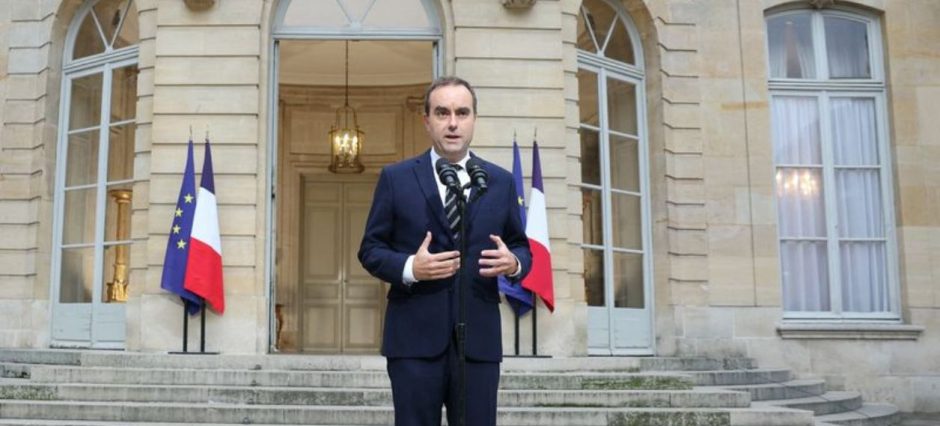France has been thrown into political turmoil after Prime Minister Sébastien Lecornu resigned less than a month into his role, citing an inability to build consensus across deeply divided political parties.
The announcement came on Monday morning, just one day after Lecornu unveiled his cabinet. Speaking to reporters, the 38-year-old prime minister said, “The conditions were not fulfilled for me to carry on as prime minister,” pointing directly to the refusal of opposition parties to engage in meaningful compromise.
Lecornu, one of President Emmanuel Macron’s closest allies, admitted that continuing under such conditions would have been futile. “I cannot lead a government without the minimum cooperation required in a democracy,” he said.
The Elysée Palace confirmed his resignation shortly after Lecornu met Macron for an hour-long discussion. The president now faces the urgent task of appointing a new prime minister to stabilize the government.
Lecornu’s exit makes him one of the shortest-serving prime ministers in modern French history. His appointment had initially been viewed as a strategic move by Macron to restore confidence in his government following a series of unpopular reforms and falling approval ratings. But political resistance proved overwhelming.
Analysts say Lecornu’s downfall reflects the increasingly fragile state of French politics since Macron’s centrist alliance lost its parliamentary majority in 2022. Without a strong coalition, every government initiative faces fierce opposition. The resignation, some experts argue, highlights just how limited Macron’s room for maneuver has become.
Adding to the uncertainty, France’s political crisis comes at a time when Europe is grappling with broader challenges — from rising energy costs to security concerns linked to conflicts in neighboring regions. A prolonged leadership vacuum in Paris could weaken France’s ability to play its traditional leadership role in the EU.
For comparison, political instability is not unique to France. Just recently, sudden upheavals in Asia also dominated headlines — such as the Everest blizzard that trapped hundreds of hikers in Tibet, underscoring how crises, whether natural or political, demand swift responses. In France’s case, the need for stability is even more pressing, given its central role in Europe’s economic and diplomatic landscape.
The Elysée Palace has yet to reveal who might succeed Lecornu, but speculation is already mounting. Macron could either opt for a caretaker leader to maintain basic operations or attempt a bold reshuffle to reassert control. Either decision carries significant risks, as political fractures show no signs of healing.
Political observers warn that the resignation is likely to embolden both right-wing and left-wing opposition forces, who may now push harder for early elections. If Macron fails to secure a durable compromise, his government could find itself paralyzed for the rest of his term.
For now, France waits as Macron weighs his next move. What was meant to be a fresh start has instead become another crisis, exposing the deep divisions shaping the country’s future.











